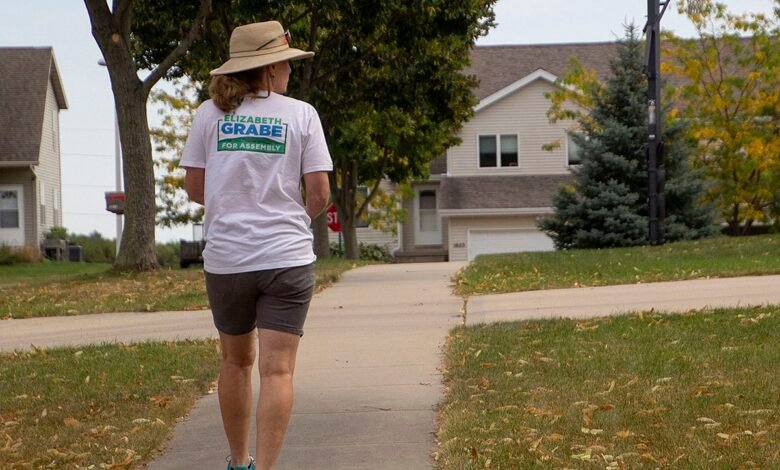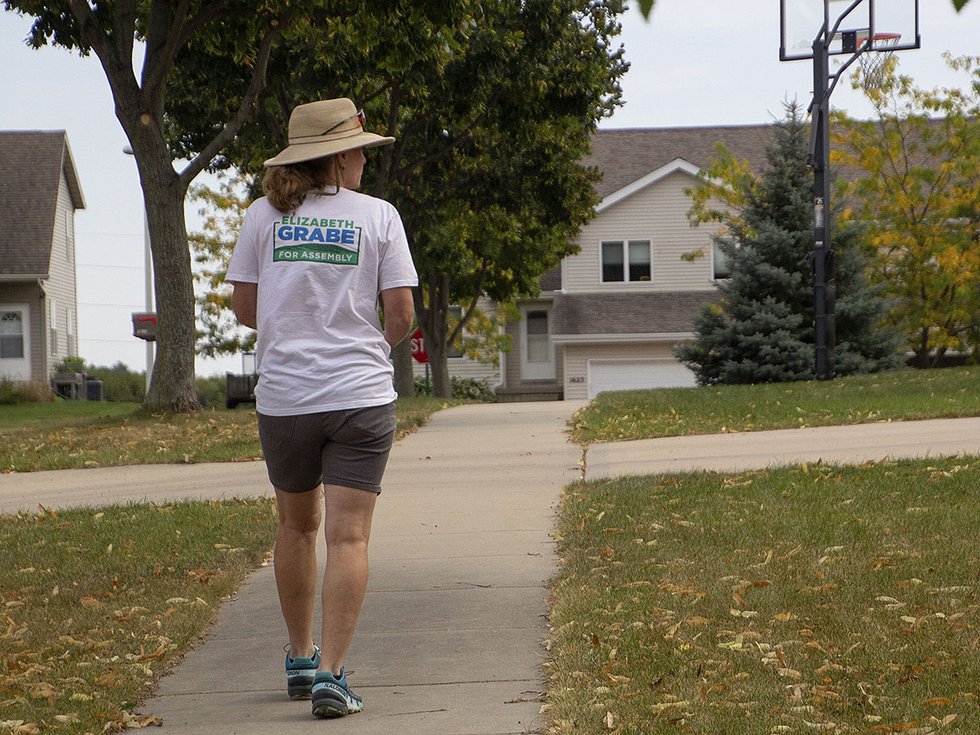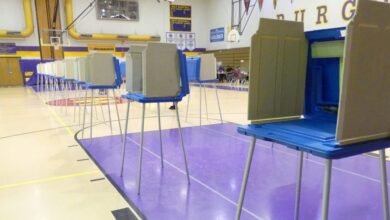Journalism in the service of democracy – Isthmus


Over the summer a national initiative called Democracy Day issued a call for proposals to newsrooms for “projects that enhance civic engagement.” The goal is for journalists to draw attention to the crisis facing our democracy. A stipend of $2,000 was included in the deal.
Chali Pittman, the news director at WORT-FM (89.9), reached out to see if we might be interested in collaborating on a multimedia project. We were.
Pittman, Isthmus publisher Jason Joyce and I met in early August to brainstorm topics. One obvious place to focus was on Wisconsin’s recently redrawn electoral districts. The old maps, drawn by Republicans, were considered some of the most gerrymandered in the country. In December 2023, the Wisconsin Supreme Court, with its new liberal majority, struck down the maps as unconstitutional. In February 2024, the Republican-controlled state Legislature accepted legislative maps submitted by Gov. Tony Evers rather than have them drawn by the state Supreme Court.
The new maps were hailed by advocates including Mark Gaber, senior director of redistricting at Campaign Legal Center, as a “massive win for democracy.”
“These maps give all Wisconsinites — no matter where they live in the state or which party they support — a fair shot to make their voice heard in 2024,” Gaber said in a statement.
Given that kind of optimism, we submitted a proposal to “investigate the grassroots consequences of Wisconsin’s new voting maps.” The question: Would these newly competitive districts lead to higher civic participation and a more robust discussion of policy issues?
We decided to focus on Assembly District 51, which, during the redistricting process, lost chunks of Richland and Green counties but gained Mount Horeb in Dane County, which is reliably blue. It also gained all of Iowa County, which voted for Democrats for president in the 2016 and 2020 elections.
We knew it would be hard to quantitatively measure an increase or decrease in civic engagement, but hoped to get a sense of activity from interviews with candidates, party organizers, community leaders and voters from both parties. One development we were keen to follow: Would Republican Rep. Todd Novak, who has held the seat since 2015 and declined in the past to participate in candidate forums, agree to publicly debate his opponent now that his district is 55% Democratic, based on 2022 top-of-the-ticket results?
We were awarded the stipend in July, with a deadline to publish on Democracy Day (Sept. 15), which coincides with International Democracy Day.
We assembled a team of two print reporters, Steven Walters and Liam Beran; a photographer, Drake White-Bergey; and an audio engineer, Abigail Leavins, to do on-the-ground reporting and interviews. Pittman and I directed the crew and edited and produced the final products, with help from Isthmus art director Tommy Washbush and calendar editor Bob Koch, who provides expert copy editing and proofing.
Our first story, published Sept. 15, includes extensive audio interviews (a condensed version is on page 14); we ran a follow-up piece on Sept. 20. WORT’s audio story ran on Sept. 19. Did Novak appear at a Sept. 16 candidate forum? You’ll have to see our coverage to find out.
our project was one of 17 —
from among 79 applications — that landed a Democracy Day grant, but many more outlets participated in the collaboration — 239 in all 50 states published 268 pieces of journalism that “tackled civic engagement, the democratic process, and what’s being done to improve both,” according to Beatrice Forman, Democracy Day’s part-time project manager.
The idea for U.S. Democracy Day was planted in a 2022 tweet from one of its organizers, Rachel Glickhouse: “It would be great to plan a Democracy Day or Week where newsrooms come together to publish reporting + editorials on the growing threat,” Glickhouse wrote. “It could be organized through an industry group, and while a challenge, I know that these kinds of collaborations are possible.”
A mostly volunteer-run organization mobilized after that, with a team of advisors that changes every year. The project is housed at the Center for Cooperative Media at Montclair State University and funded by Democracy Fund and The Knight Foundation.
Jaisal Noor is an organizer with Democracy Day and the democracy cohort manager of the Solutions Journalism Network. His work focuses on supporting newsrooms doing democracy reporting, which includes moving reporters away from so-called horse race journalism. Studies have found that a focus on who’s winning or losing instead of issues and policy is associated with distrust in politicians, distrust in news outlets, an uninformed electorate, and inaccurate reporting of opinion poll data.
“You’re covering politics as a sport and more specifically as a spectator sport,” says Noor. “That doesn’t work for democracy. It’s not about spectators watching from the sidelines.” When reporters instead talk and engage with their community and audience, he adds, they are able to “hold politicians accountable to the needs of the community.”
“It’s important for the media to be pro-democracy and to be pro-democracy you have to put your community and audience first, and transparency first and engagement first,” says Noor.
Advocates of this approach hope it will resonate with readers and listeners who are turned off by horse race reporting. “We know that news avoidance is on the rise,” says Noor. The 2024 Reuters poll found that 39% of news consumers sometimes or often avoid the news — that’s up three percentage points from last year.
To provide context for our project it was necessary to include some details on district makeup and past election results, but we did not dwell on that. Our reporting included interviews with Novak and his Democratic challenger, Elizabeth Grabe, as well as on-the-street visits to coffee shops and events to talk to voters about their concerns. And Isthmus staff writer Beran spent a fair amount of time talking with Shawn Phetteplace, campaigns director of Main Street Alliance, a group that this year for the first time organized forums for state races in newly competitive districts, including District 51.
I was pleased to see that our coverage was included in a roundup of projects Democracy Day organizers deemed to have “national appeal.” Other selections included Investigate Midwest’s piece on how the presidential election could alter life for immigrant farmworkers and The 19th’s piece on how a group of Black women is reimagining voter turnout. All stories produced as part of Democracy Day are available for republication.
Ours was not an easy project to pull together. It involved a team of reporters, editors and producers from two organizations. We were reporting outside of our usual coverage area. Time was tight — we had to publish within a couple of months after receiving news of the stipend. And, surprise, not everybody wants to talk with reporters!
The project organizers kindly acknowledged the hard work with a bonus gift.
“Journalists deserve treats,” Forman wrote in a LinkedIn post describing the 2024 Democracy Day effort, “which is why we gave away 66 gift cards to newsrooms to spend on food for their teams as a thank you for doing tough — and often thankless — work.”


